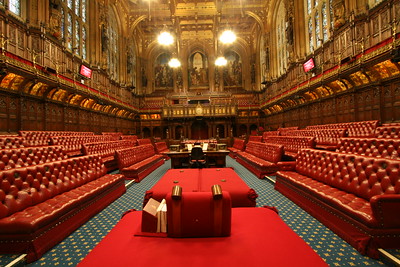This is the seventh and final of our posts looking at the main points of contention at Committee Stage in the House of Lords for the Medicines and Medical Devices Bill 2019-20.
[Part I available here, Part II available here, Part III available here, Part IV available here, Part V available here, Part VI available here]
This is the second of our posts on the final two Sessions of the Lords’ Committee Stage on the MMDB. Our first post concentrated on amendments tabled by Peers which sought to implement elements of the Cumberlege Review. This post looks in more detail at Peers’ concerns of the potential for regulatory divergence with Northern Ireland in the future, and addresses debate on consultation duties in the Bill as falling short of the scrutiny that the breadth of delegated powers conferred by the Bill warrant.
Northern Ireland Regulatory Divergence
The potential for regulatory divergence between Northern Ireland and the rest of the UK was broached at the end of Session 6 with a reply from Baroness Penn commencing Session 7. Baroness Wheeler and Lord Patel each spoke to tabled amendments looking to mitigate the effect of future divergence by requiring annual reporting from the Government and for collaborative working with the Department of Health in Northern Ireland. This issue had become more pressing in light of the lack of clarity over the workings of the Northern Ireland protocol and in light of recently published MHRA guidance which distinguished between the Northern Ireland market and the market of Great Britain.
Baroness Penn assured the house that collaboration with the relevant Northern Ireland departments and authorities was underway and would continue. She also rejected the need for a specific duty to report on potential divergence and measures to mitigate it by pointing to the duty to report biannually as contained in the clause 41 provisions on consultation. She again stated that such reporting could include issues of divergence and is intended to be both backward looking and forward looking in assessing what might need to be improved in future.
Baroness Penn also stated that regulations on which the MHRA guidance were based had already been laid before Parliament. She said that they were due to be debated before the end of the year, but were not pertinent to this Bill because they do not look to the future regulation of medicines and medical devices. In fact draft regulations mirroring the MHRA guidance on medical devices were laid before Parliament on the 15th October with a newer version being laid on 10th November. Regulations concerning human medicines and veterinary medicines were laid before Parliament on 20th October and 2nd November respectively. Both Baroness Wheeler and Lord Patel remained unconvinced. It is not at all clear how regulations affecting the system in place in Northern Ireland and the rest of the UK are not to do with the future regulation of medicines and medical devices themselves. Further, whilst assertions that reporting on divergence can be accommodated within clause 41 reports were given, there is no guarantee they will actually be reported on as this remains at the discretion of the Secretary of State.
Consultation Requirements
The need for scrutiny threaded through discussion of amendments relating to the consultation requirements in clause 41 of the Bill and amendments aimed at ensuring collaboration with devolved powers. Clause 41 creates the duty on the Secretary of State to consult before making regulations using the powers conferred in the Bill and a Government amendment to this clause would ensure that any such consultation would be ‘public’. This amendment was made as a response to the criticism of the Delegated Powers and Regulatory Reform Committee (DPRRC). Amendments from Lord Patel and Baroness Wheeler, amongst others, sought to insert a list of persons including patients and patient groups who should be consulted into the clause. These were based on concerns that the open nature of the original clause, simply providing that the Secretary of State should consult who they deem appropriate, would leave too much discretion to Government.

In relation to amendments requiring consultation with devolved powers, Lord Bethell said that Government is already engaging with devolved powers on this issue with the intention to continue. This commitment without explicit expression in the Bill may appear weak in light of the publicised unguarded comments from the Prime Minister that devolution in Scotland was “ a disaster” . alluded to by Baroness Finlay in her response to the Minister when speaking in relation to the debate on amendments to clause 16 discussed in Part VI. Lord Bethell also contended that amendments creating lists of persons to be consulted in clause 41 were unnecessary as the Government’s own amendment requiring that consultations be ‘public’ was sufficiently broad. Further, he argued that including lists could lead to unintended exclusion from consultation or give undue weight to one group over another. However, Lord Hunt’s maintained that lists are not an anomaly in legislation and their inclusion does not tie the Government to only consulting those listed.
Throughout Committee Stage, Peers have expressed dissatisfaction with both the Bill and the Government’s handling of it. It will be interesting to see how debates pan out at Report Stage. Many of the more contentious issues are likely to be revisited.
Written by: Laura Downey and Rachael Dickson
Funding: Work on this was generously supported by a Wellcome Trust Investigator Award in Humanities and Social Sciences 2019-2024 (Grant No: 212507/Z/18/Z) and an ESRC Impact Acceleration Award.
